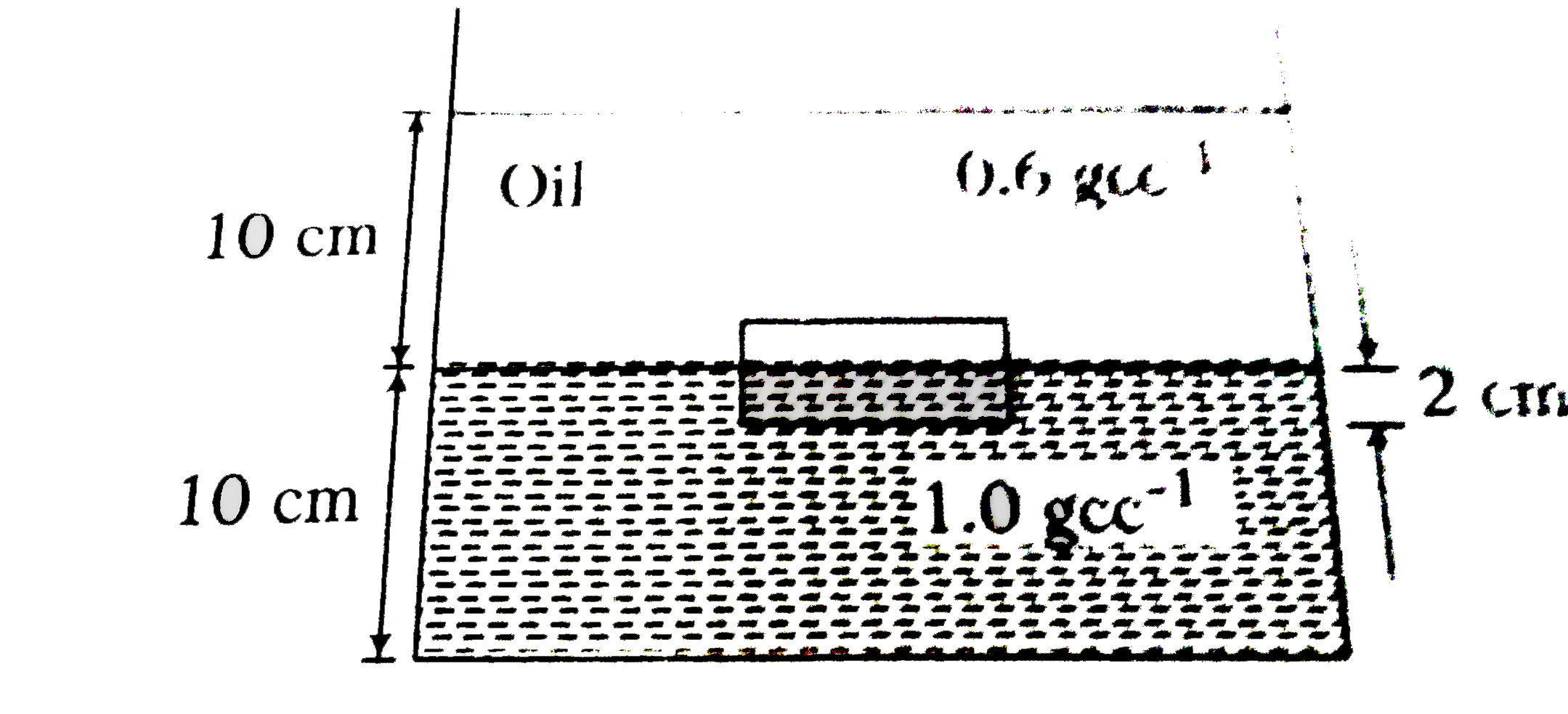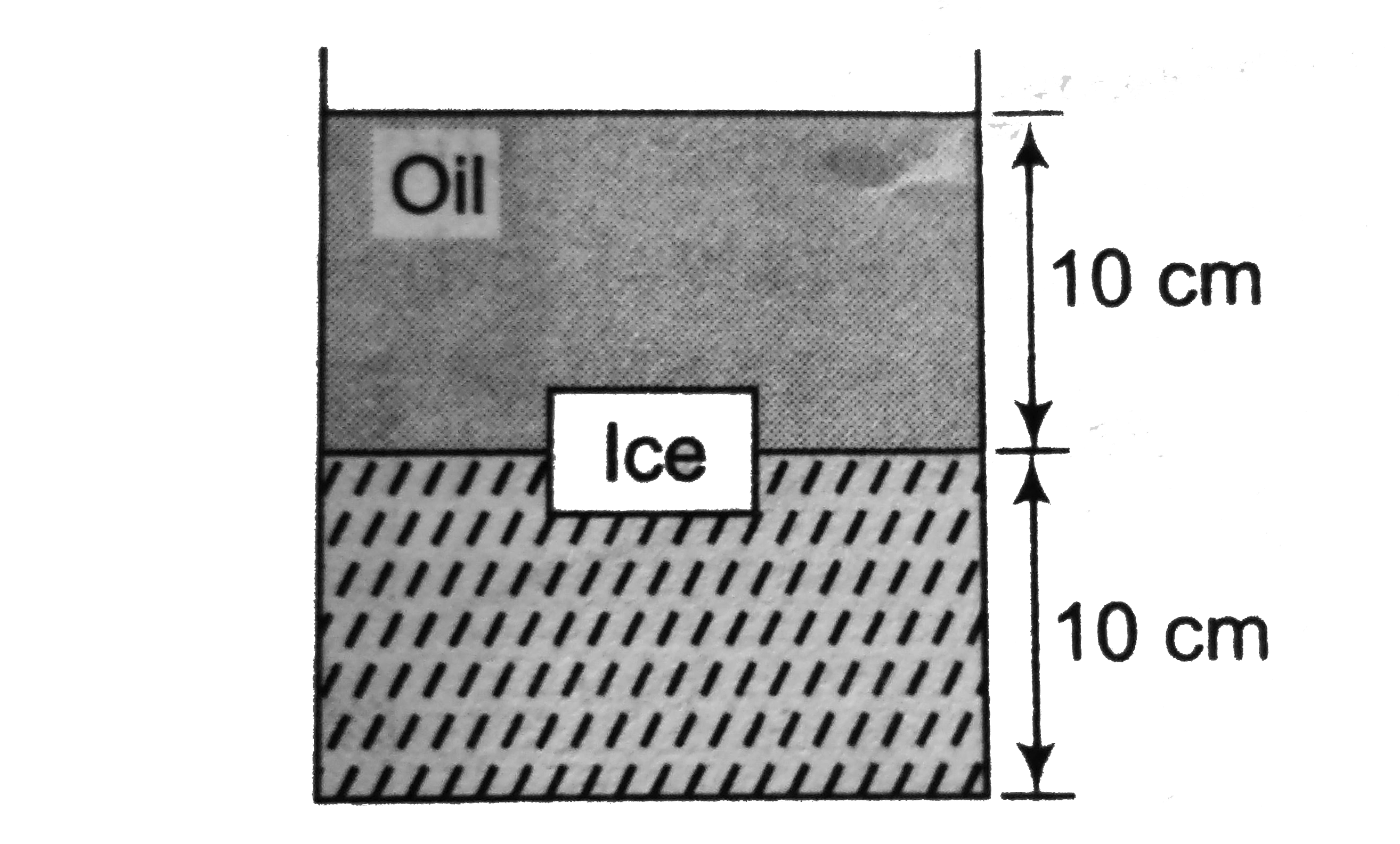A highly rigid cubical block (A) of small mass (M) and slide (L) is fixed rigidly on to another cubical block (B) of the same dimesions and of low modulus of rigidity (eta) such that the lower face of (A) completely covers the upper face of (B). The lower face of (B) is rigidly held on a horizontal surface. (A) small force (F) is applied perpendicular to one of the sides faces of (A). After the force is withdrawn, block (A) executes small oscillations the time period of which is given by.
2π√MηL
2π√Mη/L
2π√ML/η
2π√M/ηL
The correct Answer is:D
[η]=[ML−1T−2]
Hence, [√MηL]=√[M][ML−1T−2][L]=[T]
Topper's Solved these Questions
- PHYSICAL WORLD, UNITS AND MEASUREMENTSBOOK - DISHA PUBLICATIONCHAPTER - PHYSICAL WORLD, UNITS AND MEASUREMENTSEXERCISE - Exercise - 1 : Concept Builder (Topicwise)(Topic 3 : Dimensions of Physical Quantities)
22 Videos
- OSCILLATIONS BOOK - DISHA PUBLICATIONCHAPTER - OSCILLATIONS EXERCISE - Exercise-2 : Concept Applicator
28 Videos
- RAY OPTICS AND OPTICAL INSTRUMENTSBOOK - DISHA PUBLICATIONCHAPTER - RAY OPTICS AND OPTICAL INSTRUMENTSEXERCISE - Exercise -2 : Concept Applicator
26 Videos
Similar Questions
A cubical block of side a and of mass m rests on a rough horizontal surface. A horizontal force F is applied to normal to one of the faces at height h above the base h>a/2. What is the minimum value of F for which the cube begins to tip about an edge?
View SolutionA force Fis tangentially applied on the upper face of a cube of side b and whose lower face is fixed. If modulus of rigidity is n then upper surface of cube is shifted to
View Solution
Knowledge Check
A highly rigid cubical block A of small mass M and slide L is fixed rigidly on to another cubical block B of the same dimensions and of low modulus of rigidity η such that the lower face of A completely covers the upper face of B. The lower face of B is rigidly held on a horizontal surface. A small force F is applied perpendicular to one of the sides faces of A. After the force is withdrawn, block A executes small oscillations the time period of which is given by.
A(2π)√MηLB(2π)√MηLC(2π)√MLηD(2π)√MηLA highly rigid cubical block A of small mass M and side L is fixed rigidly on the other cubical block of same dimensions and of modulus of rigidity η such that the lower face of A completely covers the upper face of B. The lower face of B is rigidly held on a horizontal surface . A small force F is applied perpendicular to one of the side faces of A. After the force is withdrawn , block A executes faces of A. After the force is withdrawn , block A exceutes small oscillations , the time period of which is given by
A2π√MηLB2π√Mη/LC2π√ML/ηD2π√M/ηLOne of the square faces of a metal slab of side 50 cm and thickness 20 cm is rigidly fixed on a horizontal surface. If a tangential force of 30 N is applied to the top face and it is known that the shear modulus of the material is 4×1010N/m2, then the displacement (in m) of the top face is
A4×10−12mB4×10−10mC6×10−10mD8×10−10m
A cube with all six faces coloured is cut into 64 cubical blocks of the same size which are thoroughly mixed. Find the probability that the 2 randomly chosen blocks have 2 coloured faces each.
View Solutionthe gauge pressure at the lower face of the block is
View SolutionA cubical block of side 10 cm floats at the interface of an oil and water. The pressure above that of atmosphere at the lower face of the block is

View SolutionTwo blocks of equal mass 2 kg are placed on a rough horizontally surfaces as shown and a force F is applied on the upper block . The system is initially at rest . Find acceleration of the lower block in m/s2 .

View SolutionA cubical block of side 10cm floats at the interface of an oil and water as shown in the figure. The density of oil is 0.6gcm−3 and the lower face of ice cube is 2cm below the interface. The pressure above that of the atomosphere at the lower face of the block is

View Solution
